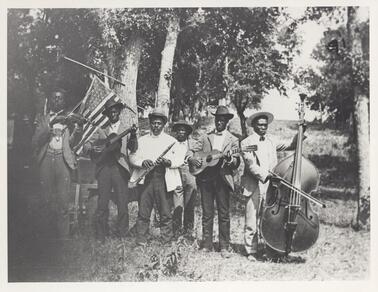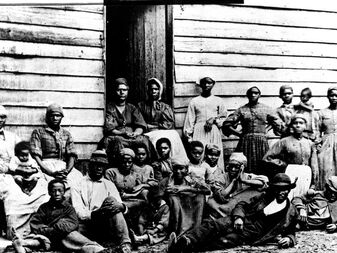|
 "Juneteenth (short for “June Nineteenth”) marks the day when federal troops arrived in Galveston, Texas in 1865 to take control of the state and ensure that all enslaved people be freed. The troops’ arrival came a full two and a half years after the signing of the Emancipation Proclamation. Juneteenth honors the end to slavery in the United States and is considered the longest-running African American holiday." - Elizabeth Nix When I was 15 years old, I was introduced to Juneteenth by my beautiful sister and friend Alicia Watts (ne Carson). She orchestrated the first ever Juneteenth event I have attended. We celebrated our ancestry and delved deep into the origins of the emancipation of African American slaves in the 1800s. We discussed how, though the Emancipation Proclamation was signed in 1863 - it really wasn't until the adoption of the 13th amendment in December of 1865 that all slaves were formally declared free. We discussed when slaves in Texas received the news of their emancipation two years after the declaration was signed. It is important to understand the climate in Texas at that time. Since the discussion of emancipation began as early as 1861, Texas had become a safe haven for slave owners since the region itself was minimally involved in the onslaught of the civil war. Many saw Texas as a place where they can preserve slave labor. While President Abraham Lincoln was sure to communicate that his objective for the Civil War was to preserve the union and not to free slaves - he ultimately issued the Emancipation Proclamation of 1863 to free slaves in confederate states exclusively. In his own words in the Daily National Intelligence in August of 1862, Abraham Lincoln wrote, "My paramount object in this struggle is to save the union and is not either to save or destroy slavery." The Emancipation Proclamation was more of a war tactic that was aimed to disarm the strength of the south who heavily relied on slave labor to support their war efforts. This proclamation did not mean freedom for the nearly 4 million slaves who resided in the border states (states that had not seceded from the union): Missouri, Delaware, Kentucky, and Maryland. Some argue that West Virginia was also a border state. Upon it's release, the news had not made its way to many slaves. The failure to communicate was also exacerbated by slave owners who purposely hid the news. Texas was one of the regions that was left out of the emancipation conversation. So, on June 19, 1865, when federal General Granger lead federal troops into Texas with this news it was cemented as a day of jubilee - to be celebrated annually. It marked the confirmation of answers for prayers prayed for generations. It also signified that this victory lead to the adaptation of what is would mean for African Americans to be free in a land that was instituted - up to that point- to include them in society as property and/or 3/5 of a person (The Three Fifths Compromise 1787). How would our nation adapt? The adoption of Jim Crow laws answered that question approximately twelve years later. Since my first celebration of Juneteenth, I have always thought about the holiday but admittedly did not give it the attention it rightfully deserves. With today's climate, I am glad that a light is being shed on such an important occasion in our nations' history and that I can take the time to give more attention where it is due. If you have not celebrated it before or do not know about it, I invite you to learn more and join the celebration. What 2020 has taught us, more than anything, is that it is important to take a look at what we once called normal so that we can make some important changes to create something better - something new. Thank you for reading and being willing to take a collective look. God bless you. Sources and Resources Sources: https://history.com/news/what-is-juneteenth,
https://www.history.com/topics/american-civil-war/emancipation-proclamation "Arn't I A Woman." by Deborah Gray White (1999) Resources: Also Check out Journey to Juneteenth by Tamara Carson: https://books.google.com/books/about/Journey_to_Juneteenth.html?id=rAn7nQEACAAJ A Short History of Reconstruction by Eric Foner The Stony Road by Henry Louis Gates Jr. The Second Founding by Eric Foner Battle Cry of Freedom by James McPherson Note: I did not use APA format to site my sources. I will come back and do so eventually. Thanks for being gracious.
0 Comments
Leave a Reply. |
AuthorChristine Houston is a believer, wife, and mother of two amazing children. Writing has always been a form of expression where she feels at home. Now she is getting to integrate her faith and her love of history to bring a new spin to the current climate of our nation with the hope to bring understanding and bridge the gap created by racial divides ArchivesCategories |

 RSS Feed
RSS Feed